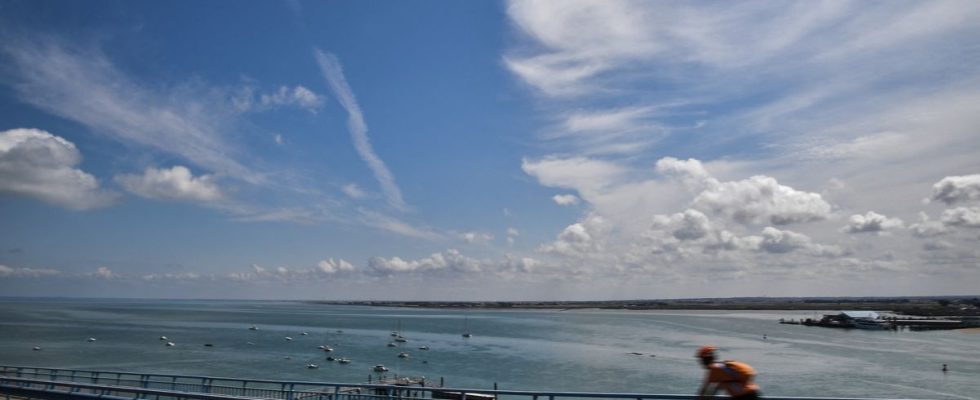It has been freely accessible for twenty-nine years. But it might not last. THE Vendée departmental council will decide on Friday on the possible introduction of a toll to cross the Noirmoutier bridge. The spectacular structure, which since 1971 has linked La Barre-de-monts, on the continent, to La Barbâtre, on the island, is used by 8,000 vehicles per day on average.
But peaks of more than 20,000 vehicles are common in summer or on weekends with good weather, creating endless traffic jams. This is too much for more and more residents who, beyond traffic difficulties, point to a phenomenon of “overtourism” accompanied by growing nuisances.
Well aware of the problem, the four communes of Noirmoutier thought about solutions and ended up agreeing to demand restrictions on access to the island. Their idea: to put an end to the free use of the bridge by reestablishing a “right of passage” for motorized vehicles, as was the case between 1971 and 1994. An official request to this effect was made to the department of Vendée, owner of the bridge, by community of communes of the island on September 21.
Already in force on the Ile de Ré
“This overcrowding of automobiles in our territory generates a road network not adapted to this traffic, proven nuisances for all of our residents, a degraded experience for our tourist visitors and a security problem for the gendarmerie and Sdis services,” deplores the community of communes.
The community also emphasizes the environmental dimension. “Our island environment, through the footprint of motorized land vehicles, is being seriously degraded. This footprint was measured in the diagnosis of our Climate Plan with degraded air quality,” adds the community of municipalities, which evokes a “fragile territory” whose preservation justifies the search for “new solidarity recipes”.
The introduction of a toll is not an invention of local elected officials but a provision provided for by article L-11 of the environmental code. This stipulates that the financial benefits of the tax would thus be “exclusively allocated to the preservation of natural spaces”. This is also what is happening on re island (Charente-Maritime), where an ecotax has existed since 2012. Only residents of the island are exempt.
The price varies depending on the type of vehicle and time of year. For a car or campervan, it costs 8 euros to cross from mid-September to mid-June, 16 euros in summer. A system which generates around 3 million euros in revenue per year and has already contributed to preserving natural reserves, financing staff responsible for monitoring the environment, or strengthening public transport.
A risk for the Gois passage?
In Noirmoutier, just like on the continent, where tourism provides a living for many residents, the idea of tolls is not unanimous. Critics fear the island’s economy will suffer. Others say that traffic is partly transferred to the Gois, this atypical submersible passage (open only at low tide) which arouses the curiosity of tourists from all over the world. Already very busy in summer, this 4.5 km road is not suitable for absorbing a significant flow of vehicles all year round. “There are already too many cars passing through the Gois. This place is beautiful. We can still afford to fish there. It shouldn’t lose its magic,” says Luc, 66, a “regular” visitor.
Employees living on the continent are also concerned that a tax will be required of them. “I already travel a lot of kilometers because I can’t find decently priced accommodation on the island. If tomorrow I have to pay a toll, I think I would give up,” worries Estelle, who works in catering. Conversely, defenders of a toll, like Thomas, 38, consider that it would be sufficiently dissuasive to decongest the streets. “We might lose visitors but we would gain charm and tranquility. It would be beneficial for everyone in the long term,” he is convinced.

